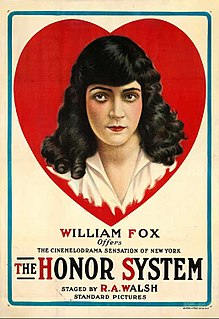The British honours system is a means of rewarding individuals' personal bravery, achievement, or service to the United Kingdom and the British Overseas Territories. The system consists of three types of award – honours, decorations and medals:

A bachelor's degree or baccalaureate is an undergraduate academic degree awarded by colleges and universities upon completion of a course of study lasting three to seven years. In some institutions and educational systems, some bachelor's degrees can only be taken as graduate or postgraduate degrees after a first degree has been completed. In countries with qualifications frameworks, bachelor's degrees are normally one of the major levels in the framework, although some qualifications titled bachelor's degrees may be at other levels and some qualifications with non-bachelor's titles may be classified as bachelor's degrees.

The Most Excellent Order of the British Empire is a British order of chivalry, rewarding contributions to the arts and sciences, work with charitable and welfare organisations,
and public service outside the civil service. It was established on 4 June 1917 by King George V and comprises five classes across both civil and military divisions, the most senior two of which make the recipient either a knight if male or dame if female. There is also the related British Empire Medal, whose recipients are affiliated with, but not members of, the order.

The New Zealand Royal Honours system, a system of orders, decorations and medals, recognises achievements of, or service by, New Zealanders or others in connection with New Zealand. Until 1975 New Zealand used the British honours system. Since then the country has introduced a number of uniquely New Zealand honours, and as of 2018 only the dynastic British honours continue in active use in New Zealand, with the exception of the Order of the Companions of Honour.

The New Zealand Order of Merit is an order of merit in New Zealand's honours system. It was established by royal warrant on 30 May 1996 by Elizabeth II, Queen of New Zealand, "for those persons who in any field of endeavour, have rendered meritorious service to the Crown and nation or who have become distinguished by their eminence, talents, contributions or other merits", to recognise outstanding service to the Crown and people of New Zealand in a civil or military capacity.
The Australian honours system consists of a number of orders, decorations, and medals through which the country's sovereign awards its citizens for actions or deeds that benefit the nation. Established in 1975 with the creation of the Order of Australia, the system's scope has grown since then and over time has replaced the Imperial/British honours system that previously applied to Australians. The system includes an array of awards, both civil and military, for gallantry, bravery, distinguished service, meritorious service, and long service. Various campaign and commemorative medals have also been struck. New honours can be awarded at any time, but conventionally most new honours are awarded on Australia Day and on the Queen's Birthday every year, when lists of new honours are published.
The British undergraduate degree classification system is a grading structure for undergraduate degrees or bachelor's degrees and integrated master's degrees in the United Kingdom. The system has been applied in other countries and regions.
Latin honors are Latin phrases used to indicate the level of distinction with which an academic degree has been earned. This system is primarily used in the United States, many countries of continental Europe, and some Southeastern Asian countries with European colonial history, such as Indonesia and the Philippines, although some institutions use translations of these phrases rather than the Latin originals. The honors distinction should not be confused with the honors degrees offered in some countries.

Honor Blackman is an English actress, widely known for the roles of Cathy Gale in The Avengers (1962–64), Bond girl Pussy Galore in Goldfinger (1964), Julia Daggett in Shalako (1968) and Hera in Jason and the Argonauts (1963). She is also notable for her role as Laura West in the ITV sitcom The Upper Hand (1990–1996).
Nomination is part of the process of selecting a candidate for either election to a public office, or the bestowing of an honor or award. A collection of nominees narrowed from the full list of candidates is a short list.
An honor student is a student recognized for achieving high grades or high marks in their coursework at school.
A Dean's List is an academic award, or distinction, used to recognize the level of highest scholarship demonstrated by students in a college or university. This system is most often used in North America, though institutions in Europe, Asia, and Australia may also employ similar measures. It is often synonymous with honor roll and honor list, but should not be confused with honours degrees.
Kongara Jaggayya was an Indian film actor, littérateur, journalist, lyricist, dubbing artist and politician known for his works predominantly in Telugu cinema and Telugu theatre. Regarded as one of the finest method actors of Indian cinema, he was known as Kanchu Kantham Jaggayya (Telugu) for his booming voice. In a film career spanning forty years as a matinee idol, he starred in eighty films, as a lead actor, and lead antagonist in a variety of genres.

Bommireddy Narasimha Reddy was an Indian film director and an early figure in the Telugu cinema.
Honour is the quality of being honorable.

The 1976 Prime Minister's Resignation Honours were announced on 27 May 1976 to mark the resignation of the Prime Minister, Harold Wilson. The list of honours became known satirically as the "Lavender List".
A Bachelor of Science is an undergraduate academic degree awarded for completed courses that generally last three to five years, or a person holding such a degree.
Karnataka State Film Award for Best Actor is a state film award of the Indian state of Karnataka given during the annual Karnataka State Film Awards. The award honours Kannada Language films.
This is a list of some of the modern orders, decorations and medals of France. Some like the Legion of Honour are awarded to both the armed forces and civilians. Others are decorations of a pure civilian or military character. Only four of the 19 Ministerial orders have survived the reform of the French system of decorations in 1963. The others were replaced by the Ordre national du Mérite.
The following is a list of the European Film Award winners for Lifetime Achievement:








